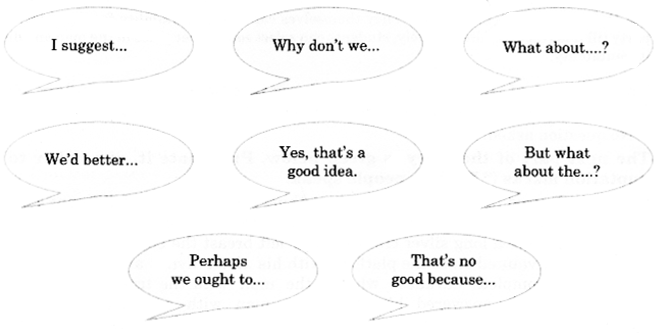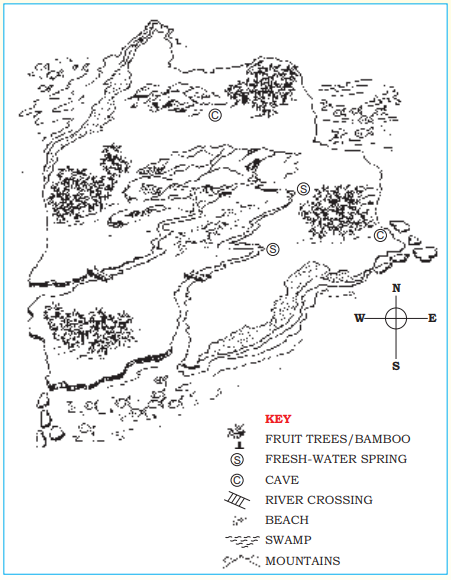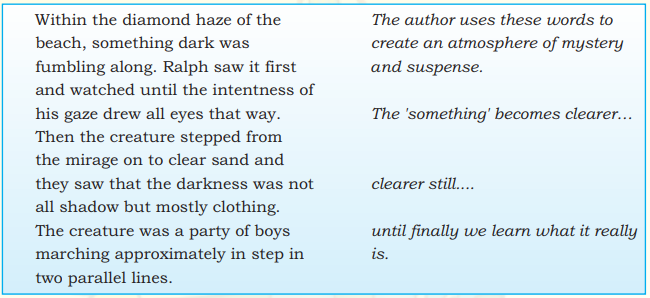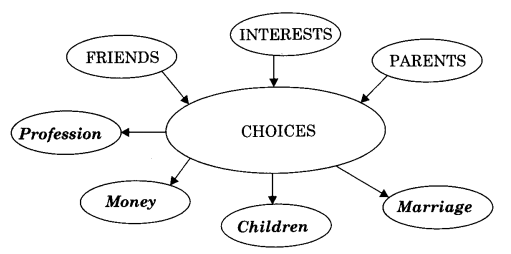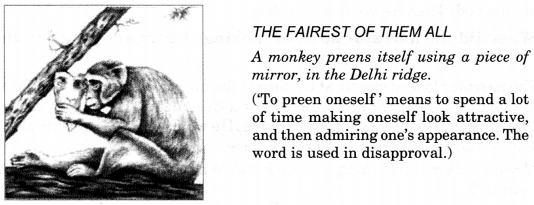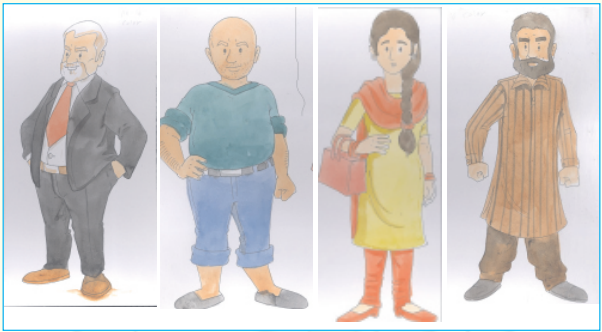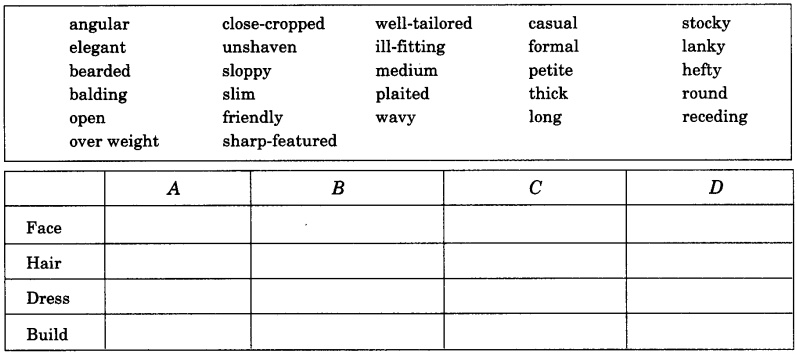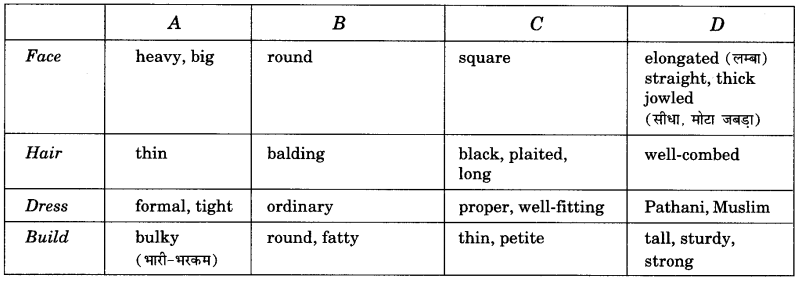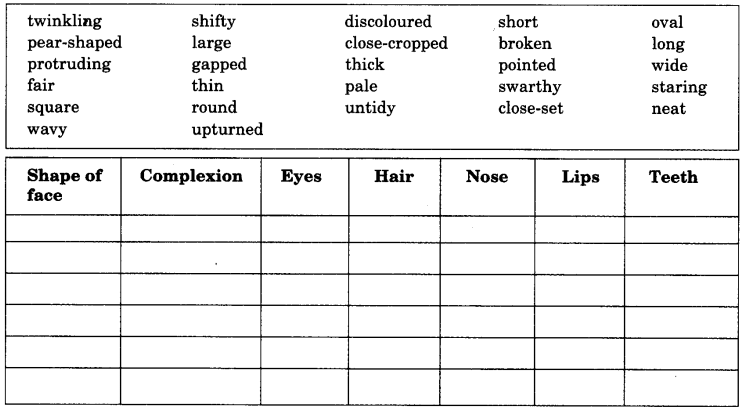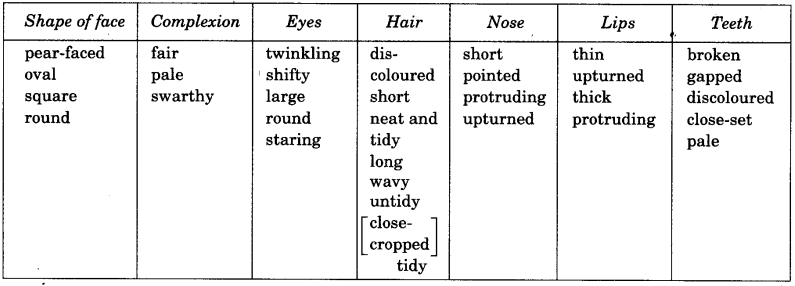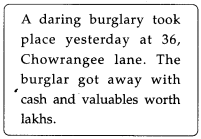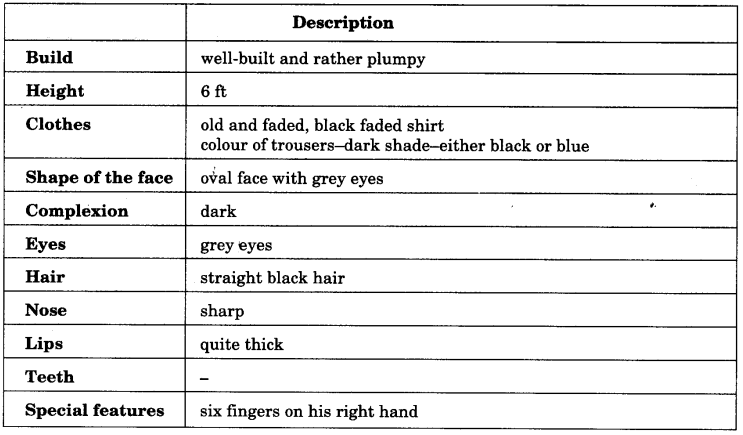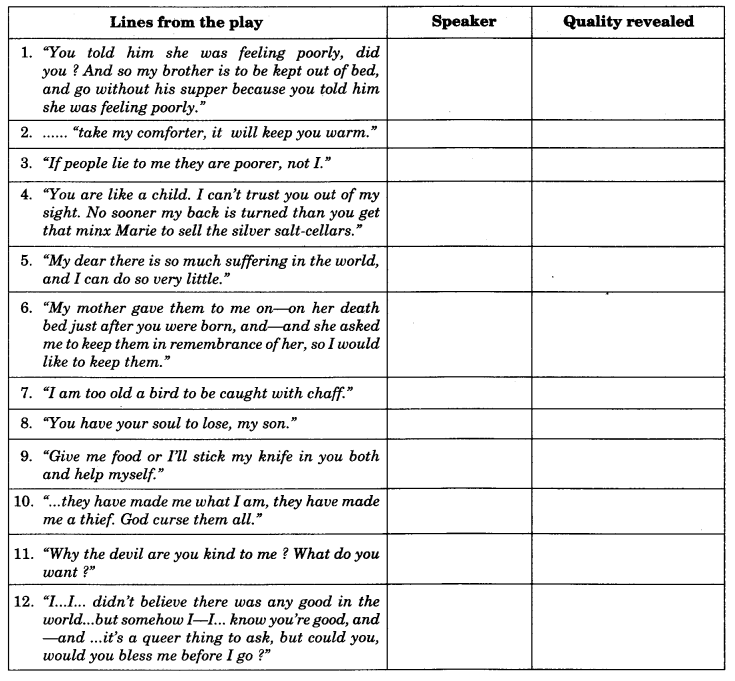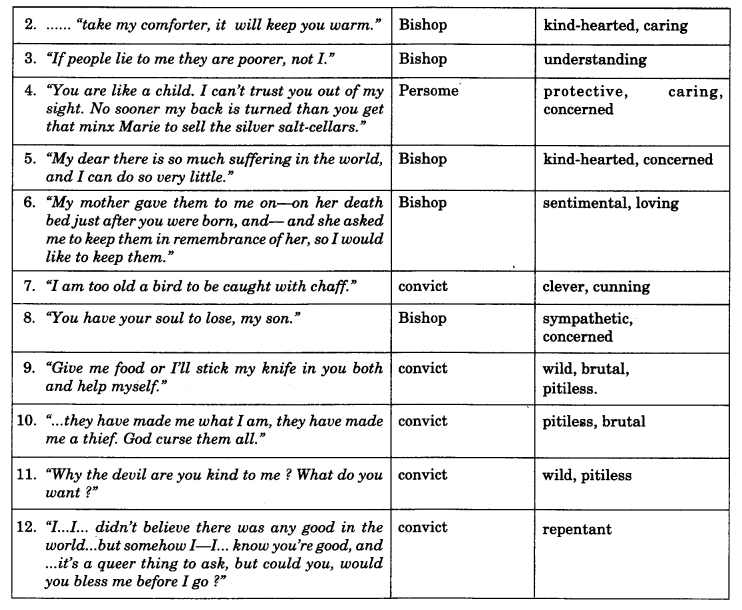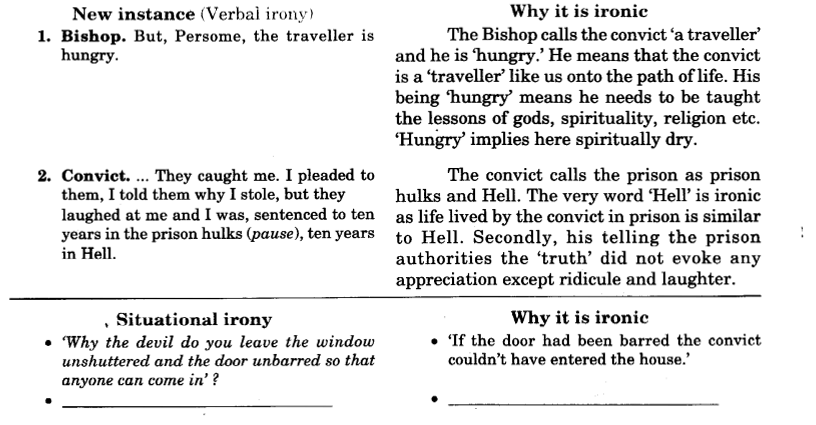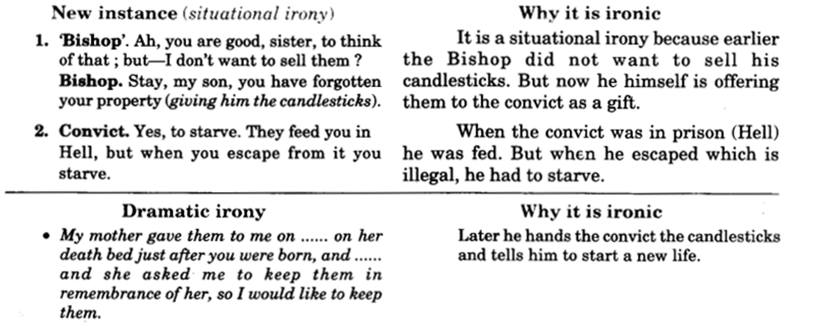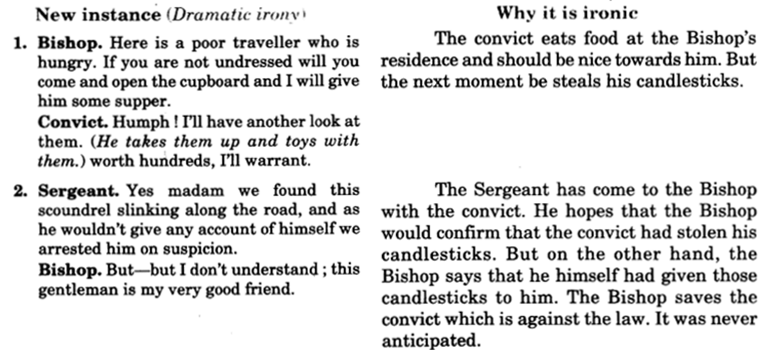NCERT Solutions for Class 9 English Main Course Book Unit 5 Mystery Chapter 4 Harry Potter are part of NCERT Solutions for Class 9 English. Here we have given NCERT Solutions for Class 9 English Main Course Book Unit 5 Mystery Chapter 4 Harry Potter.
| Board | CBSE |
| Textbook | NCERT |
| Class | Class 9 |
| Subject | English Main Course Book |
| Chapter | Unit 5 Chapter 4 |
| Chapter Name | Harry Potter |
| Category | NCERT Solutions |
CBSE Class 9 English Main Course Book Unit 5 Mystery Chapter 4 Harry Potter
TEXTUAL EXERCISES
(Page 104)
Question 1.
Listen to the following conversation adapted from ‘Harry Potter and the Philosopher’s Stone’ by J. K. Rowling. As you listen to the excerpt, complete the following statements.
- Aunt Petunia did not like her sister and brother-in-law as ………. .
- Harry’s mother had met his father at ………. .
- Harry had been told that his parents had ………. ,This was not the truth as ………. .
- The name of the Wizard who killed Harry Potter’s parents was ………. .
- Hagrid was reluctant to name ………. ,and called him ………. .
- Harry got the scar on his forehead when ………. .
Answer :
- they were a witch and a wizard respectively
- a school
- died in a car crash … they had been killed by a wizard named Voldemort
- Voldemort
- the murderer of Harry Potter’s parents … Voldemort
- an evil curse touched him and he became powerful.
Question 2.
Film / Book Review
The aim of writing a film review is to judge a film or a book and inform the viewer / reader about it. The reviewer talks about the subject of the film / book being reviewed and how the film maker or director / author has handled the subject. At times the reviewer’s aim is to arouse the interest of the viewer / reader so that she / he wishes to see the film / read the book.Sometimes, the reviewer warns the viewer/ reader why she / he should not see or read a particular film / book. Write a review of a Harry Potter film / book or an episode of Malgudi Days that you have seen.
You must include :
- the name of the film / book
- the cast / director / writer
- the important characters
- a very brief outline of the film / book
- why the film/ book was worth seeing or reading / not worth seeing or reading.
Sources :
- //en.wikipedia.org/wiki/Bermuda-Triangle//
- /www.bermuda-triangle.org/
- /www.bermudatrianglemystery.net./
Write a review of a Harry Potter film / book or an episode of Malgudi Days that you have seen.
Answer :
Students to write the review on their own of the film, a book or an episode as asked, on the guidelines given here.
Some information is given here to enable them to write the review.
1. Harry Potter :
A series of seven fantasy novels written by the British author J.K. Rowling. The books chronicle the adventures of the adolescent wizard Harry Potter and his best friends Ron Weasley and Hermione Granger – students at Hogwarts School of Witchcraft and Wizardry – main story concerns Harry’s quandary involving the evil wizard Lord Voldemort, who killed Harry’s parents in his quest to conquer the wizarding world and subjugate non-magical people – thus a fight between good and evil. Good symbolised by Harry through being humble; virtuous evil symbolised by Voldemort.
Main theme is death, though the novels have many genres including fantasy, love, prejudice etc – themes of normality, oppression, survival, overcoming odds, making one’s way through adolescence also possible. Novels on Harry Potter have been a grand commercial success due to having been filmed and converted into video games – richer than Queen Elizabeth II – best seller for children’s literature in 2000.
Novels received praise but also criticism and controversy like: written for people whose imaginative lives are confined to TV cartoons, soaps, reality TV and celebrity gossip; good and evil theme merely childish.
2. Malgudi Days Episode : A Hero :
The protagonist, a 13-year old boy, very coward, afraid of ghosts, shadows, can’t sleep alone, father asks to shed cowardice, makes him sleep in his study – protagonist can’t sleep, winks and swears oaths in anger – a thief enters – gathers courage catches his leg and cries – thief caught – protagonist declared ‘a hero’. Simple plot, rural and village setting, educative in taste, entertaining, touches sentiments of all, humorous in what the protagonist mumbles while cursing and trying to sleep alone.
We hope the NCERT Solutions for Class 9 English Main Course Book Unit 5 Mystery Chapter 4 Harry Potter help you. If you have any query regarding NCERT Solutions for Class 9 English Main Course Book Unit 5 Mystery Chapter 4 Harry Potter, drop a comment below and we will get back to you at the earliest.

